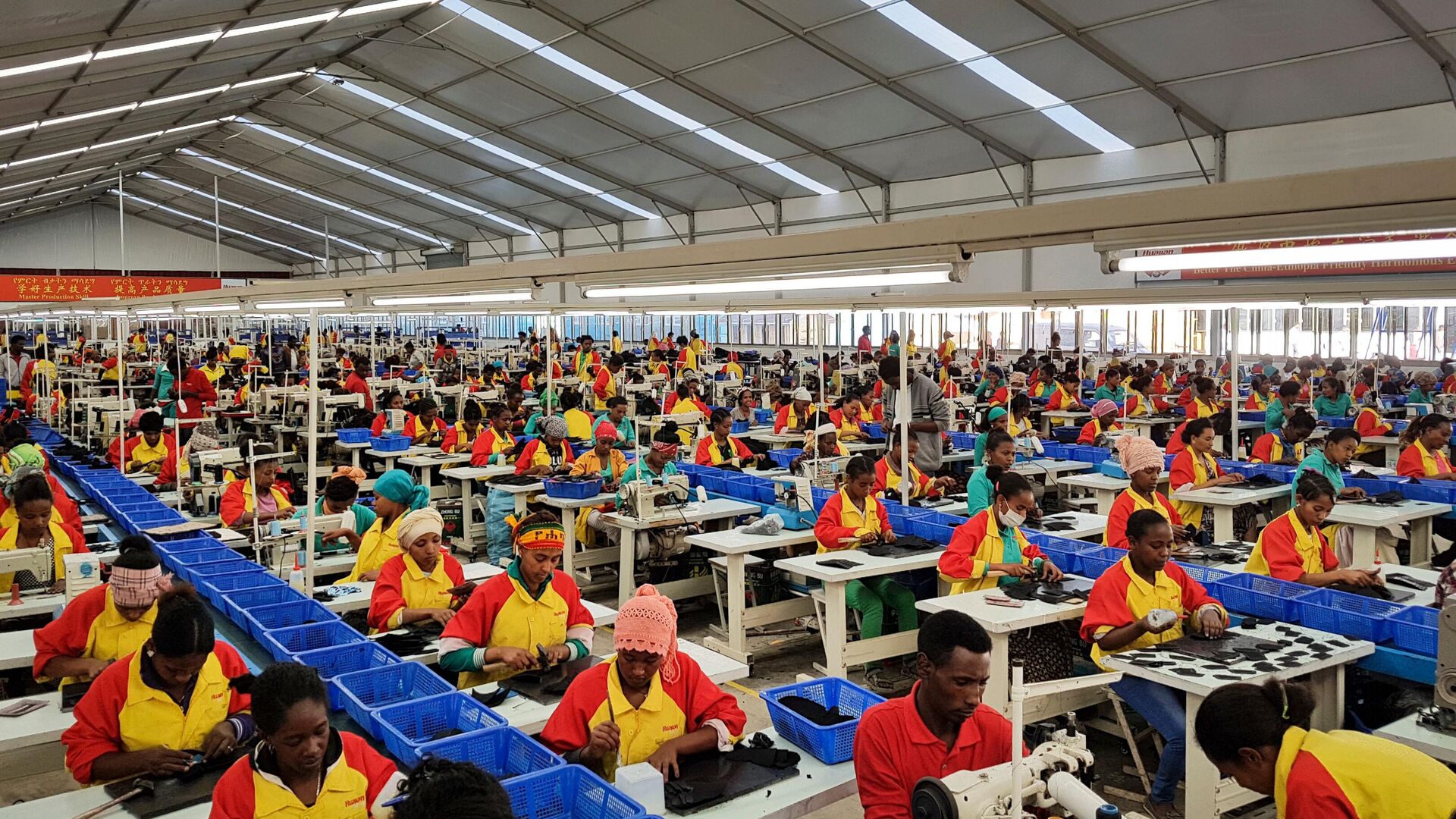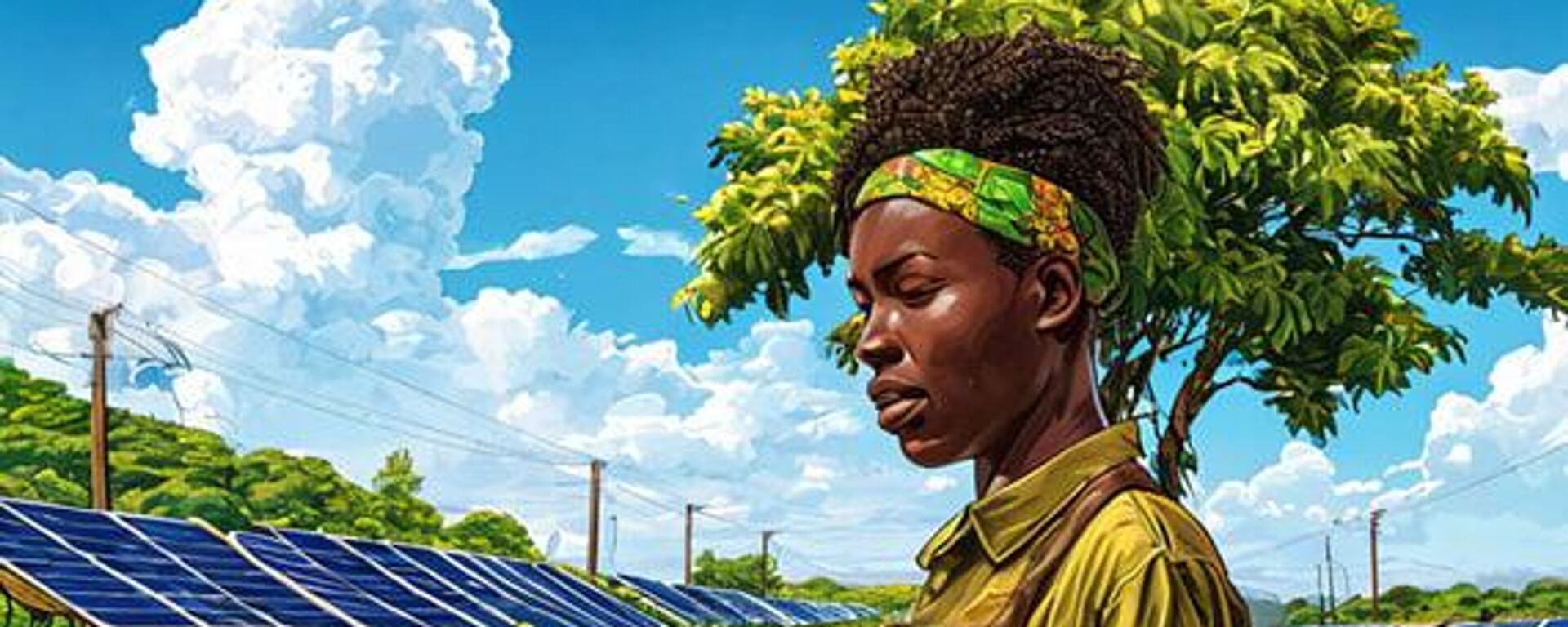https://en.sputniknews.africa/20250120/un-report-africas-economy-set-to-grow-in-2025-even-as-global-growth-stalls--1070272394.html
UN Report: Africa's Economy Set to Grow in 2025 Even as Global Growth Stalls
UN Report: Africa's Economy Set to Grow in 2025 Even as Global Growth Stalls
Sputnik Africa
According to the Economist Intelligence Unit's report "Africa Outlook 2025: Driving Investment Opportunities Amid Political Pressures," at least 15 African... 20.01.2025, Sputnik Africa
2025-01-20T16:47+0100
2025-01-20T16:47+0100
2025-01-20T17:34+0100
economy
africa
antonio guterres
nigeria
egypt
united nations (un)
economic growth
debt
inflation
finance
https://cdn1.img.sputniknews.africa/img/07e9/01/14/1070272585_0:112:3242:1936_1920x0_80_0_0_935375b01a7bb2cb71c9a6882a3f10f1.jpg
Africa’s economy is forecast to experience modest growth in 2025, driven by recoveries in key economies such as Nigeria, Egypt, and South Africa, according to the World Economic Situation and Prospects 2025 report released by the United Nations.The continent’s growth rate is projected to rise from 3.4% in 2024 to 3.7% in 2025, with further improvement to 4.0% expected in 2026.While Africa’s outlook remains positive, the global economy is expected to stagnate, growing by just 2.8% in 2025—significantly below the pre-pandemic average of 3.2%. Structural issues such as weak investment and sluggish productivity continue to constrain global recovery, the report noted. The United Nations Secretary-General Antonio Guterres highlighted persistent challenges, including inflation, debt burdens, and climate vulnerabilities, as barriers to economic progress worldwide.For Africa, inflation and debt servicing remain key obstacles. Many African countries face double-digit inflation rates, with food inflation particularly persistent, worsening food insecurity in vulnerable populations. Additionally, debt servicing consumed an average of 27% of government revenues in Africa in 2024, up from 19% in 2019, limiting resources for essential public investments, according to the report.The report also identified opportunities for economic growth through Africa’s reserves of critical minerals like cobalt and lithium, which are vital for clean energy technologies. However, it emphasized the need for sustainable resource management and international cooperation to address Africa’s development challenges, including reforms to the global financial system and investments in renewable energy and infrastructure.
https://en.sputniknews.africa/20241229/ai-predicts-africas-promising-and-dynamic-transformation-by-2025-1069954788.html
africa
nigeria
egypt
west africa
north africa
south africa
southern africa
Sputnik Africa
feedback@sputniknews.com
+74956456601
MIA „Rossiya Segodnya“
2025
Christina Glazkova
https://cdn1.img.sputniknews.africa/img/07e7/0b/07/1063380906_0:0:673:674_100x100_80_0_0_79628b4d0cd9f29291a57aa13bbf9e7a.jpg
Christina Glazkova
https://cdn1.img.sputniknews.africa/img/07e7/0b/07/1063380906_0:0:673:674_100x100_80_0_0_79628b4d0cd9f29291a57aa13bbf9e7a.jpg
News
en_EN
Sputnik Africa
feedback@sputniknews.com
+74956456601
MIA „Rossiya Segodnya“
Sputnik Africa
feedback@sputniknews.com
+74956456601
MIA „Rossiya Segodnya“
Christina Glazkova
https://cdn1.img.sputniknews.africa/img/07e7/0b/07/1063380906_0:0:673:674_100x100_80_0_0_79628b4d0cd9f29291a57aa13bbf9e7a.jpg
economy, africa, antonio guterres, nigeria, egypt, united nations (un), economic growth, debt, inflation, finance, west africa, north africa, south africa, southern africa
economy, africa, antonio guterres, nigeria, egypt, united nations (un), economic growth, debt, inflation, finance, west africa, north africa, south africa, southern africa
UN Report: Africa's Economy Set to Grow in 2025 Even as Global Growth Stalls
16:47 20.01.2025 (Updated: 17:34 20.01.2025) Christina Glazkova
Writer / Editor
According to the Economist Intelligence Unit's report "Africa Outlook 2025: Driving Investment Opportunities Amid Political Pressures," at least 15 African nations are projected to be among the top 20 economies with the highest growth rates in 2025. This list features countries such as Senegal, Rwanda, Libya, Cote d'Ivoire, Uganda, and Ethiopia.
Africa’s economy is forecast to experience modest growth in 2025, driven by recoveries in key economies such as Nigeria, Egypt, and South Africa, according to the World Economic Situation and Prospects 2025
report released by the United Nations.
The continent’s growth rate is projected to rise from 3.4% in 2024 to 3.7% in 2025, with further improvement to 4.0% expected in 2026.
While Africa’s outlook remains positive, the global economy is expected to stagnate, growing by just
2.8% in 2025—significantly below the pre-pandemic average of 3.2%. Structural issues such as weak
investment and sluggish productivity continue to constrain global recovery, the report noted. The United Nations Secretary-General Antonio Guterres highlighted persistent challenges, including inflation, debt burdens, and climate vulnerabilities, as barriers to economic progress worldwide.
For Africa, inflation and
debt servicing remain key obstacles. Many African countries face double-digit inflation rates, with food inflation particularly persistent, worsening food insecurity in vulnerable populations. Additionally, debt servicing consumed an average of
27% of government revenues in Africa in 2024, up from 19% in 2019, limiting resources for essential public investments, according to the report.
The report also identified opportunities for economic growth through Africa’s reserves of critical minerals like cobalt and lithium, which are vital for clean energy technologies. However, it emphasized the need for sustainable
resource management and international cooperation to address Africa’s development challenges, including reforms to the global financial system and investments in renewable energy and infrastructure.



